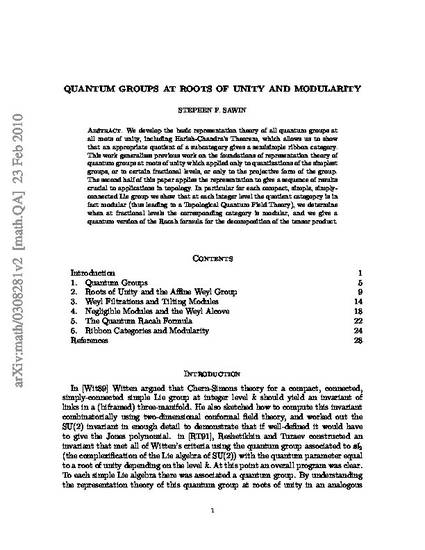
We develop the basic representation theory of all quantum groups at all roots of unity (that is, for q any root of unity, where q is defined as in [18]), including Harish–Chandra's theorem, which allows us to show that an appropriate quotient of a subcategory gives a semisimple ribbon category. This work generalizes previous work on the foundations of representation theory of quantum groups at roots of unity which applied only to quantizations of the simplest groups, or to certain fractional levels, or only to the projective form of the group. The second half of this paper applies the representation theory to give a sequence of results crucial to applications in topology. In particular, for each compact, simple, simply-connected Lie group we show that at each integer level the quotient category is in fact modular (thus leading to a Topological Quantum Field Theory), we determine when at fractional levels the corresponding category is modular, and we give a quantum version of the Racah formula for the decomposition of the tensor product.
Available at: http://works.bepress.com/stephen_sawin/3/

Electronic version of an article published in Journal of Knot Theory and Its Ramifications, 15, 10, 2006, 1245-1277. DOI: 10.1142/S0218216506005160 © copyright World Scientific Publishing Company. http://www.worldscinet.com/jktr/jktr.shtml